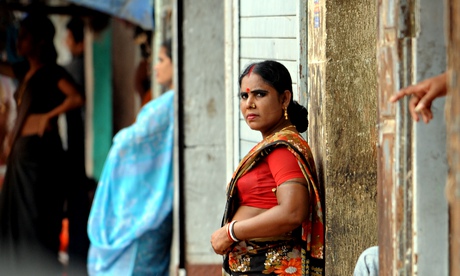The local football team, Ajax, had just won the championship, and as is traditional, the mayor of Amsterdam expected some abuse at the victory parade. “It is a Dutch tradition – it is usually just screaming and throwing cans of beer,”said Femke Halsema, the first woman to take the highest office in the Dutch capital.
Halsema, 53, a former leader of the national Green party, though, faced a difference grade of barracking: shouts of “bitch” and “whore”, and a wall of middle fingers. “It was a moment when I was confronted by being a woman,” she said, laughing. “I think the last mayor wasn’t called a bitch.”
If Halsema’s appointment by the left-led city council 18 months ago has discomfited some, it has not stood in the way of her quietly radical agenda, based on a philosophy that the longstanding Dutch tradition of tolerance could not mean turning a blind eye to the more pernicious consequences of letting the market rip.
A central target of her reforms is Amsterdam’s infamous red-light district, the narrow streets that run around the city’s docks, where Dutch tolerance now risks looking more like indifference. “As Janis Joplin said, ‘Freedom is just another word for nothing left to lose’,” Halsema said. “Well, that’s not the way we are going.”
In recent months the mayor has asked the city’s inhabitants to at least allow themselves to consider the red-light district’s closure as the most radical option of a bundle of possible reforms. At the same time, she has defended her “edgy city” and the window brothels, insisting she will not make a “taboo of sexuality … or of a woman’s body”.
It is part of a wider agenda seeking to distinguish between a laissez-faire approach and the notion of tolerating difference that includes plans to work with companies in the hope of opening the eyes of the Dutch middle classes to the consequences of their cocaine use, having admitted herself to once giving it a try.
“They should know or realise that the young boy who comes and brings their pizza and their cocaine is in danger of getting into a drug environment that is very dangerous to him, that could get him killed,” she said. “I used it once – I grew up in the east of Holland and there was not much to do except smoke cannabis.”
Halsema is also casting around for lessons from other cities to help solve some of Amsterdam’s most pressing problems: Barcelona on dealing with the potentially fracturing impact of tourism on neighbourhoods; New York’s Brooklyn on gentrification; and, after a tip from London’s mayor, Sadiq Khan, during a visit to the UK, she has introduced a programme that has achieved success in Glasgow and Chicago in discouraging young men and women from being drawn into the grip of drug traffickers.
But perhaps her initiative for the red-light district in Amsterdam best encapsulates her approach to dealing with the vastly changing nature of her city, where the population and economy is booming, in part due to Brexit relocations, but where seediness and criminality have also taken an unhealthy hold.
Speaking in her City Hall office, Halsema said: “I am a progressive, a liberal. When I was a member of parliament ages ago, I was partly responsible for acknowledging prostitution as a legal profession in Holland.
“And I am still in favour of accepting prostitution as a legal profession because I think the only way we can go to emancipate sex workers is to acknowledge that it is a market, there is supply and demand. But the red-light district has a sentimental flavour around it from the past – the idea of a sailor coming in and strong Dutch women telling him what he wants and doesn’t want.
“But if you look at the actual situation in the red-light district, most women working there are foreign, in a very vulnerable legal status. And we do not know much about their backgrounds,” said Halsema.
“The other big change is tourism. It is no longer an intimate district. If you walk through the very narrow streets, you see huge crowds of tourists standing in front of the windows photographing foreign women who are vulnerable and laughing at them.
“As a woman, I cannot accept this kind of humiliation of women. I cannot accept it. It is against all women’s rights and against the idea that we want to empower sex workers.”
The options include increasing the size of the district to deal with the overcrowding, to relocate some of the sex workers to a sex hotel, or to bring in turnstiles to force payment from those who want to walk on certain streets. As for closing the area down, she said: “I don’t think it is very realistic as it is also a very profitable district, so it would be very expensive to do that.”
What she says is “non-negotiable” is that the women’s situation must be bettered, that those who live around the area are disturbed less and that criminality is not given an easy ride.
“We call it brancheren – interfering with the economic branches of the city,” said Halsema. “In the last five or six years, the inner city has become an economic zone, while it is also cultural heritage. We need to rethink the main cultural significance of our inner city and what it means for the people who live in Amsterdam and Holland. We need to have the guts to interfere in the economic structures of the city. I think we are in time.”










